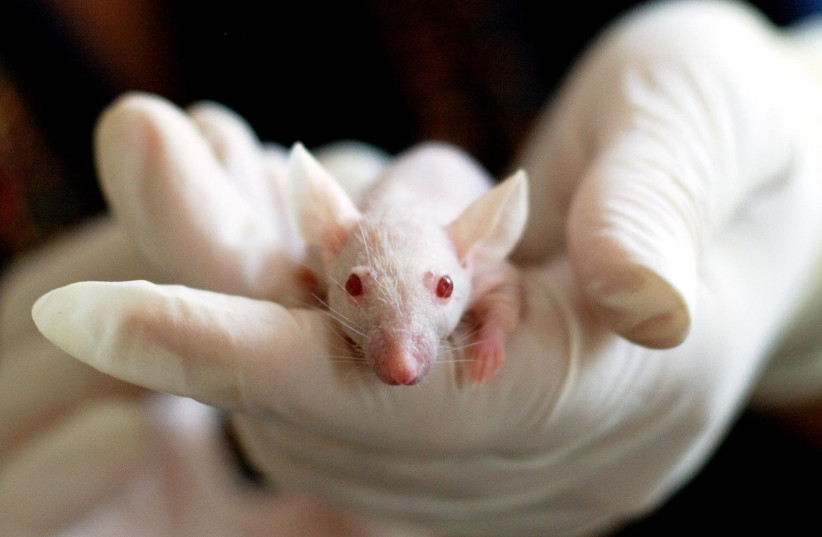Is too much oxygen harmful to the body?
California researchers, who studied mice, suggest that what they discovered could one day help decide whether to use supplemental oxygen as a medical treatment.
Everyone knows that having too little oxygen in your lungs from holding your breath for too long is harmful and even deadly. But is it dangerous to have too much?
Hyperbaric oxygen chambers are used all the time for scuba divers suffering from decompressing sickness to raise air pressure to a level that is higher than normal air pressure to help the lungs collect more oxygen to the tissues. Yet, breathing air with a higher oxygen level than your body needs can cause health problems or even death.
Now, a new study from the Gladstone Institutes – an independent, non-profit biomedical research organization aimed at treating, curing, and preventing cardiovascular, viral, and neurological conditions, affiliated with the University of California – has studied the matter.
Their findings, reported in the journal Science Advances under the title “In Vivo Protein Turnover Rates in Varying Oxygen Tensions Nominate MYBBP1A as a Novel Mediator of the Hyperoxia Response,” have just been published in the journal Science Advances.
They investigated in lab mice how breathing air with different levels of oxygen – from too little to just right, or too much – affects the creation and degradation of different proteins in the rodents’ lungs, heart, and brain. Their findings include a particular protein that may play a key role in regulating how cells respond to hyperoxia (an excess of oxygen).
Findings of the study

“These results have implications for many different diseases,” noted Gladstone, assistant investigator and senior author Dr. Isha Jain. “More than one million Americans breathe supplemental oxygen every day for medical reasons. Studies suggest it could be making things worse in some cases. That’s just one setting where our work is starting to explain what’s happening and how the body responds.”
Most prior research on oxygen levels has examined the molecular effects of too little oxygen, and even there, most of the focus has been on how low oxygen affects which genes are turned on or off.
“Our study enters uncharted territory by using mice and looking downstream of gene expression at which proteins abnormally accumulate or degrade in response to different oxygen concentrations,” said Kirsten Xuewen Chen, the paper’s first author and a graduate student at the University of California at San Francisco.
“Now, we wanted to get a more dynamic picture of how proteins are regulated when oxygen levels are too high or too low,” Chen added,
They exposed mice for several weeks to air with an oxygen level of eight percent, 21% (the level we breathe in the Earth’s atmosphere), or 60%. They fed the mice food containing a distinct form of nitrogen that the animals’ bodies integrated into new proteins.
This nitrogen isotope acted as a “label” that made it possible for the researchers to calculate protein turnover rate – the balance between protein synthesis and degradation –for thousands of different proteins in the lungs, heart, and brain.
The team found that oxygen levels more dramatically affected proteins in the lungs of mice than the heart or brain and identified certain proteins with abnormal turnover rates under high- or low-oxygen conditions.
MYBBP1A – one protein that collected under high-oxygen conditions raised their interest because it is a transcription regulator that directly affects gene expression.
“This caught our eye because prior research has shown that other transcription factors called hypoxia-inducible factors, (HIFs) play a big role in cells’ response to low oxygen,” Chen added. Our work nominates MYBBP1A for a related role in hyperoxia signalling.”
MYBBP1A is involved in the production of ribosomes—cellular “machines” that build proteins. They learned that in response to high oxygen levels, accumulation of this protein in the lungs may affect the production of ribosomal RNA – a key component of ribosomes.


No comments:
Post a Comment
Stick to the subject, NO religion, or Party politics